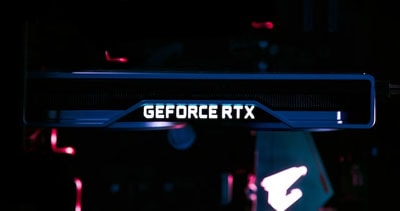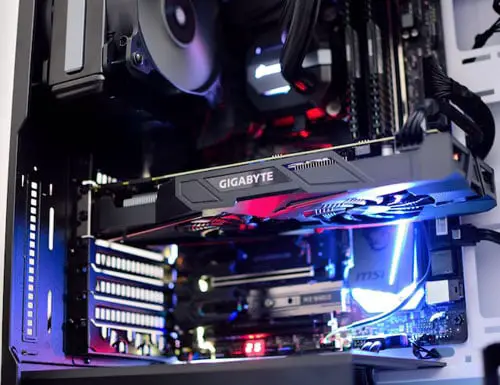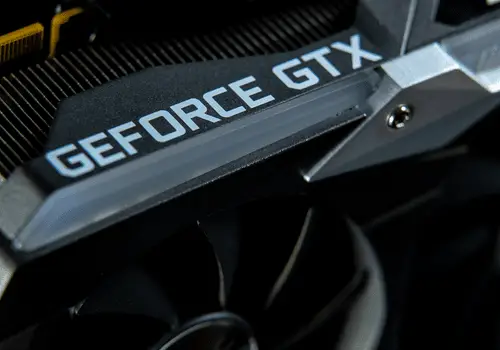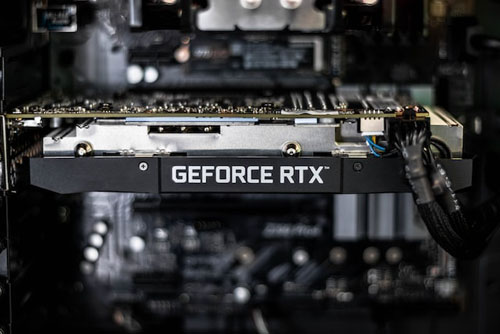
Technically speaking, no matter what you do on your PC, it has to have a GPU, also known as a graphics card. This is what lets your computer send images to the display. Colloquially though, most people refer to a dedicated graphics card when talking about a GPU. In this case, you might not need one unless you do video editing or similar GPU-heavy tasks.
Shopping for a desktop or laptop can be tough if you don't understand certain specs, like graphics cards. Having a dedicated graphics card in a computer can drive the price up significantly, which led a cousin of mine to ask whether she needed one or not, since she doesn't do any gaming.
I explained to her what a graphics card was and that helped her make the right decision. So, if you're asking yourself, do I need a graphics card if I don't play games, this guide has all the answers for you. Let's dive right into it.
Contents
First, it is important to know that every computer needs a GPU to give you visual output, no matter how simple it is.
The CPU in a modern desktop or laptop will have an integrated graphics card to handle this. This kind of CPU is sometimes referred to as an accelerated processing unit (APU).
However, when most people refer specifically to a graphics card, they are talking about what is known as a dedicated graphics card.
In a desktop, this is usually an add-on peripheral made for the sole purpose of processing graphical information. In a laptop, this is usually a chip soldered onto the motherboard.
Games require a lot of graphical processing from your computer, and this is too much to be handled by an integrated graphics card. This is why it's pretty much necessary to have a dedicated graphics card to game comfortably.
Most people who don't do anything more than light gaming will not need a dedicated graphics card in their computer.

Even if you aren't a gamer, there are other tasks apart from gaming where a dedicated graphics card is essential.
These tasks also require a lot of processing from your graphics card, so a dedicated GPU is necessary to handle them comfortably.
They include the following:
Although it is not inherently tasking on your graphics card, you may need to turn to dedicated graphics cards if you have a multi-monitor setup. You might not have enough connectors for monitors on your motherboard, which will require you to add more with graphics cards.
Related Posts:
When you buy a notebook, it will always have at least an integrated graphics card. That's what allows it to show images on its screen, after all.
While most modern CPUs installed in desktops come with integrated graphics, not all CPUs do, especially the older ones. If you happen to use a CPU without a graphics card on a modern motherboard and plug in a monitor, it simply won't show anything.
However, some older motherboards have their own onboard graphics, which means you're always covered.
In the case of a computer without a dedicated GPU, you'll certainly notice its absence when you jump into tasks that are graphically intensive, like playing games, photo editing, 3D animation, and professional editing of videos.
You'll likely experience severe slowdowns and jerky performance, and in some cases, you might not even be able to get started in the first place.

When referring to a graphics card on your desktop or laptop computer, it can either be an integrated graphics card or a dedicated/discrete graphics card.
An integrated graphics card refers to one that comes standard on the motherboard or as part of some CPUs. Integrated GPUs provide a way for your computer to process basic visual information, which is how they can project images to their screens.
However, integrated graphics cards are generally not very powerful. They will run fine if you're hoping to watch videos, do only light gaming, and browse the web. For anything more intense, their limitations will become apparent.
Meanwhile, a dedicated graphics card is one manufactured specifically to handle intense graphical tasks. Nvidia and AMD are the two companies responsible for making most dedicated graphics cards. These are more powerful than integrated graphics cards.
PC builders looking to put together a gaming PC or a workstation for intense graphical tasks are going to need to get a discrete GPU for the best performance.
If you need a graphics card for the desktop or laptop that you want to buy but don't know where to start, this section is for you.
There are many top-end, mid, and entry-level graphics cards available for both notebooks and desktops. I'll recommend popular options for each category.
If you need a graphics card in your laptop, it is important to make the decision carefully. You won't be able to upgrade without buying an entirely new laptop in virtually all cases.
Here are some great GPU options to consider if you want a laptop to take on the move.
Is the extent of your gaming limited to titles like Minecraft and Hollow Knight? Do you only do the most basic of video editing or graphics design on your notebook?
If that sounds like you, the GeForce MX450 from Nvidia is a great option.
This cheap graphics card ships with a lot of new notebooks, starting at very affordable prices. You can find several models from Lenovo's IdeaPad or Asus' ZenBook lineups with the MX450 in them. Whether you want to choose Intel CPUs or AMD Ryzen ones, there are options.
If you want something better than what modern iGPUs can offer, but still like a bit of power for mild gaming, this is the one.
Although it came out in 2020, the GTX 1650 Ti is still a capable card. Plus, its relative age makes it a lot easier to find in discounted laptops, as well.
If you're a gamer but you don't feel the need to have all your modern titles playing at the highest possible settings, the GTX 1650 Ti is one of the best GPUs you can look at.
This graphic card can play most modern titles, besides the most demanding of them, though you may need to turn the settings down to enjoy them best. Older titles like Doom (2016) and Forza Horizon 4 (2018) can be enjoyed on High to Ultra settings.
Without spending over a grand, you can get a solid system that will let you do image editing, video rendering, and a lot more.
Not everyone needs the best in discrete graphics, but for those who do, the GeForce RTX 3070 is currently one of the absolute best graphics cards that you can put into a laptop.
You might be wondering, why not the RTX 3080? Well, for gaming and other intensive tasks, that chip is definitely the winner. However, it needs to come in a bulky, expensive, power-hungry notebook, and most people want the best balance between portability and power.
The RTX 3070 will cost you quite a bit of money to get in a notebook, but if you're a serious gamer or you need the graphical power it offers, you are unlikely to be disappointed with this.
There are even some relatively affordable HP Omen models that have this GPU in them.

Okay, so if you have a full-blown gaming desktop at home, it's worth it to get a GPU to make it a worthy gaming rig.
There are many choices to pick from, depending on whether you want something at the entry, mid, or high-end level. You'll find recommendations below.
Modern entry-level cards cost quite a bit. While there are cards like the Nvidia GeForce GT 730 that can be bought for less than $100, these cards are severely outdated.
For something more modern, let's consider the GeForce GTX 1650. This card is not prohibitively expensive and has enough power to cover basic tasks for gamers and creatives alike.
Nvidia gets a lot of the love when it comes to GPUs, but AMD has really stepped up its game in recent years, with several seriously capable models in its lineup.
The Radeon RX 6600 is an affordable mid-range chip that packs a serious punch. If you're a gamer looking for a graphics card that will easily handle modern games on your PC, then it is hard to go wrong with this one.
You should be able to handle most games at High settings, though one or two might be too demanding for that. For tasks like Photoshop and video editing, you should get snappy performance.
If you want the very best of the best in your gaming rig, you'll probably hear the same recommendation from most people: the GeForce RTX 3080.
Keep in mind that this GPU is going to cost you a lot, and it's not cheap by any means. However, if you want to play any game released on Ultra settings, and even games released for the next three to five years, you can't go wrong here.
If you're not getting this to have fun but for your creative endeavors instead, it won't disappoint. You'll handle 4K and even 8K video editing better than pretty much anything else.
Even if you're not much of a gamer, your PC will always need a graphics card to be able to display images, whether it's an integrated or dedicated GPU. However, as for dedicated GPUs, most people don't need them if they're not interested in gaming.
However, if you do other creative tasks on your PC, such as video and photo editing, 3D modeling, illustration, post-production, and more, you will benefit greatly from having a discrete GPU. This will make these tasks run a lot faster.
We hope this guide answered all your questions about graphics cards in your PC. You can learn more about your computer and its components by taking a look at our related articles.
